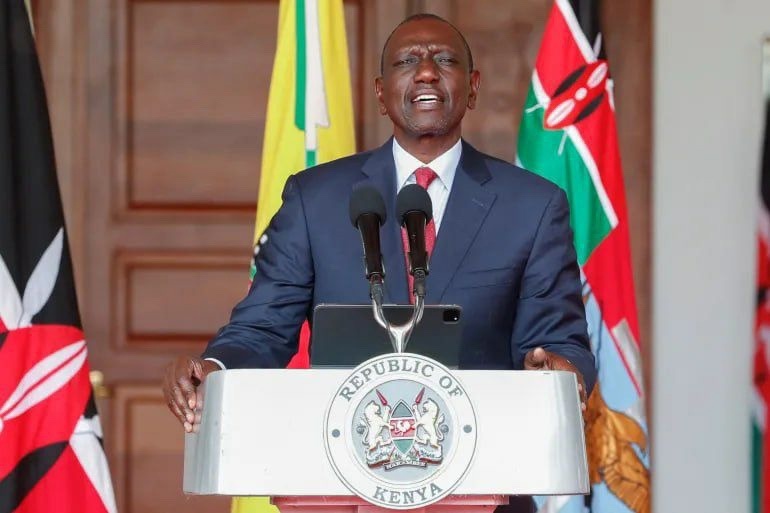By Judy Maina
NAIROBI — A majority of Kenyans are urging President William Ruto to prioritize addressing the escalating cost of living, with inflation emerging as their top concern, according to a new survey.
The findings, released by Sauti za Wananchi, indicate that 50 percent of Kenyans are most concerned about the state of the economy, while 30 percent want the President to focus on alleviating drought and hunger.
The survey, conducted between 2013 and 2024, paints a comprehensive picture of the economic challenges facing Kenya, in comparison to its East African neighbors, Tanzania and Uganda.
In a notable finding, 52 percent of respondents believe the country is headed in the wrong direction, a sentiment shared by a significant portion of the population.
When it comes to employment, Kenya leads the region with 17 percent of households relying on formal employment as their primary source of income, surpassing Tanzania’s 10 percent and Uganda’s 5 percent.
However, casual labor remains the most prevalent source of income in Kenya, with 37 percent of households depending on it. Agriculture and self-employment follow, accounting for 25 percent and 19 percent of households, respectively.
In terms of economic outlook, the survey reveals a stark contrast in perspectives across the region.
While 63 percent of Kenyans were hopeful that the country’s economy would improve within a year, only 7 percent believed the economy was currently in good shape as of 2022.
Dissatisfaction with job creation and the cost of living was widespread, with two-thirds of citizens in both Kenya and Uganda expressing discontent.
Tanzania, in contrast, showed a higher level of optimism and satisfaction, with 36 percent of respondents expressing confidence in the country’s direction, though a significant 44 percent remained unsure.
Tanzanian respondents also reported a more stable political environment conducive to business, with 73 percent agreeing with this view, compared to 45 percent in Kenya.
The survey highlights the entrepreneurial spirit in Tanzania, where 41 percent of citizens reported owning or running a business, far outpacing Kenya (24 percent) and Uganda (21 percent).
However, Kenyan business owners face significant challenges, with 48 percent citing the cost of inputs, 40 percent pointing to low demand, and 30 percent struggling with insufficient capital.
In Uganda, the primary obstacle for business owners is access to finance, identified by 63 percent of respondents.
Other challenges include transport issues (35 percent), the cost of capital (30 percent), and sourcing equipment and materials (27 percent).
The survey methodology combined traditional household interviews with mobile phone surveys to ensure a rigorous and statistically representative sample across Kenya, Uganda, and Tanzania.
The results underscore the economic and social pressures facing Kenya as President Ruto navigates his administration through these challenging times.
The writer of this story can be reached at: judy.maina@alleastafrica.com



